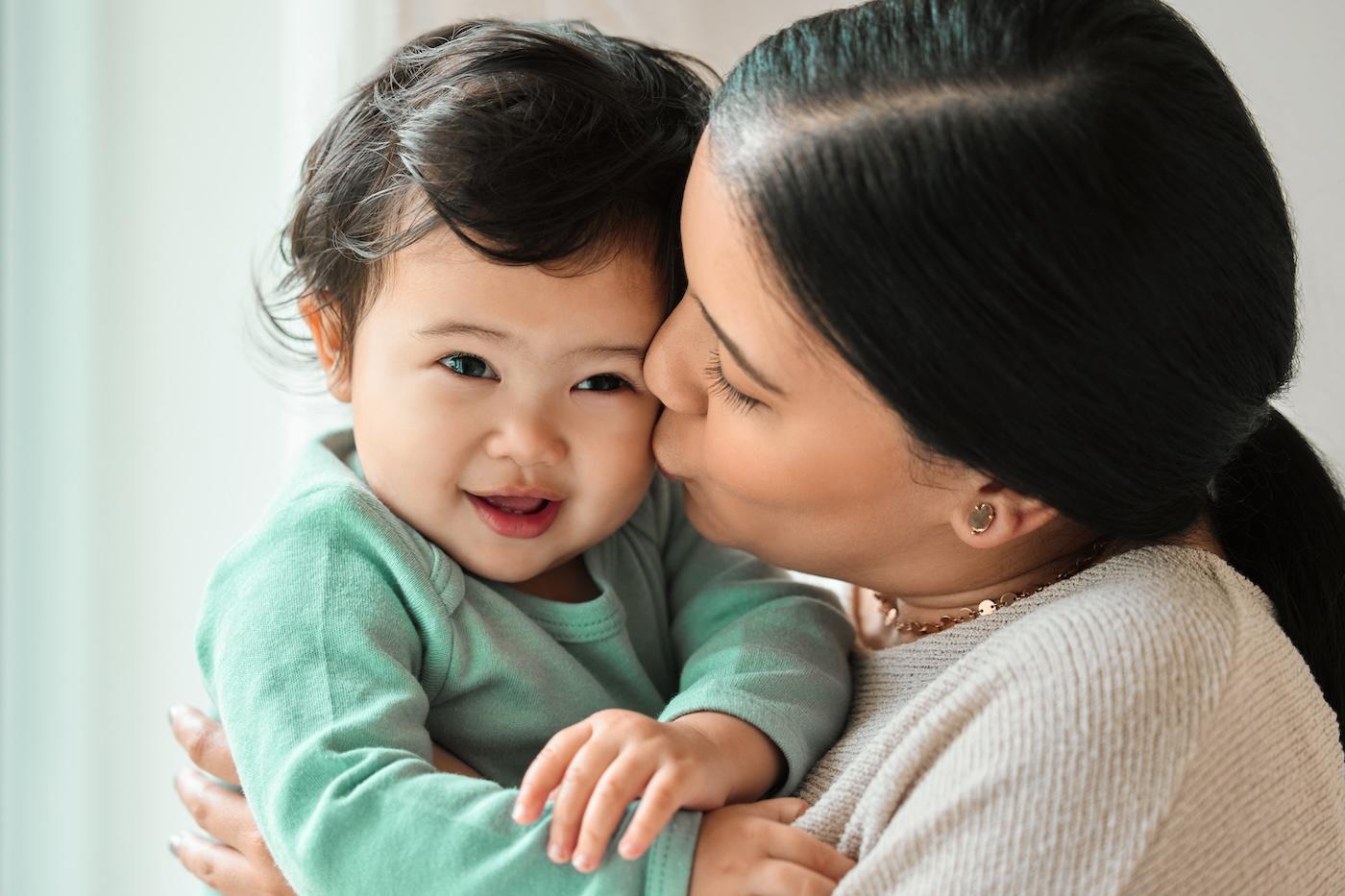PARENTS
6 Ways to Baby-Proof Your Relationship
Babies change everything—but these tips will help you stay connected!

Written by
Happiest Baby Staff

Even couples with top-notch communication can feel a bit rattled by the big changes that come with expecting a baby. One moment you’re deciding what to watch on telly; the next, you’re debating bottle sterilisers, sleep routines, and whose turn it is to fold the impossibly tiny washing.
Alas, preparing for a new baby isn’t all nurseries and baby name lists—it also involves navigating some real relationship growing pains. Experts say this transition often uncovers emotional landmines that can take couples by surprise. But with a bit of foresight (and a lot of grace), you can protect your bond and even grow closer through it all.
1. Schedule time to talk
Pregnancy brings a whirlwind of to-dos that can easily push emotional check-ins to the bottom of the list.
But Dr John Gottman, a renowned relationship researcher, underscores the importance of what he calls “stress-reducing conversations”—intentional chats where couples share everyday worries and listen with empathy, rather than jumping to solutions. “Understanding must precede advice,” he says.
Try this: Carve out 10 to 15 minutes a day to talk about something that’s not baby-related. The goal isn’t to fix—it’s to connect.
2. Talk about how you were brought up
How we were raised shapes how we approach relationships—and parenting. That’s why reflecting on your childhood experiences together before baby arrives can be incredibly helpful.
Licensed therapist and bestselling author Nedra Glover Tawwab points out that unexplored family history can affect how we relate as adults. In her book Set Boundaries, Find Peace, she explains how self-awareness and healthy boundaries are vital for strong relationships.
Try this: Chat about how you were disciplined, comforted, and supported growing up. Decide which parenting habits you want to carry forward—and which you’d prefer to leave in the past.
3. Share the load…before baby arrives
New parents often feel the pressure of shifting roles. Parenthood brings with it a need to rethink how chores and childcare are shared. If these aren’t discussed early, they can lead to stress and burnout that test even strong partnerships, according to the American Psychological Association.
Try this: Have a practical conversation about who’ll do what—from night feeds to GP visits to laundry. Revisit these plans often. Life with a baby is ever-changing, and flexibility is key. Read more on managing the mental load of parenthood.
4. Tackle conflict as a team
Disagreements are part of any relationship—it’s how you deal with them that counts. Drs John and Julie Gottman identify four behaviours—criticism, contempt, defensiveness, and stonewalling—as the “Four Horsemen” that signal relationship trouble. Their antidote? “Soft startups”—that is, gentle, respectful openings to tough conversations—and focusing on teamwork instead of blame.
“The way couples begin a discussion about a problem—how you present an issue and how your partner responds—is absolutely critical,” they explain.
Try this: Instead of “You never help with the baby,” say “I’m feeling a bit overwhelmed and could really use your help right now.” It’s a simple shift that invites cooperation.
5. Make couple-time a priority
Between feeding schedules and nap traps, it can be tricky to carve out time for romance. But keeping your connection strong matters. A longitudinal study found that couples’ relationship satisfaction often drops after becoming parents—especially if they neglect couple-time.
Try this: Create “micro-moments of connection”—small, meaningful gestures like holding hands, sharing a laugh, or offering a kind word. (Find more ways to reconnect with your partner.)
6. Know where to turn for support
If things start to feel tense or off-track, reaching out to a couples therapist—ideally one who understands perinatal mental health—can be incredibly helpful. Therapy isn’t just for when things go wrong; it can be a proactive step to strengthen your relationship’s foundations.
Remember, you’re on the same team
Welcoming a baby is a huge life change! Sure, it can feel overwhelming—but it’s also a chance to deepen your bond. With a little teamwork, thoughtful communication, and plenty of support, you and your partner can grow stronger, not just as parents, but as people who’ve truly got each other’s backs.
***
REFERENCES
- How to Have a Stress-Reducing Conversation, The Gottman Institute
- Set Boundaries, Find Peace, Nedra Glover Tawwab
- Parental Burnout, American Psychological Association
- The Four Horsemen & the Antidotes, The Gottman Institute
- Becoming a Parent Increases Meaning in Life but Reduces Happiness, Journal of Personality and Social Psychology, April 2009
Disclaimer: The information on our site is NOT medical advice for any specific person or condition. It is only meant as general information. If you have any medical questions and concerns about your child or yourself, please contact your health provider. Breastmilk is the best source of nutrition for babies. It is important that, in preparation for and during breastfeeding, mothers eat a healthy, balanced diet. Combined breast- and bottle-feeding in the first weeks of life may reduce the supply of a mother's breastmilk and reversing the decision not to breastfeed is difficult. If you do decide to use infant formula, you should follow instructions carefully.
SHARE THIS ARTICLE
PARENT PICKS
Bestsellers



















